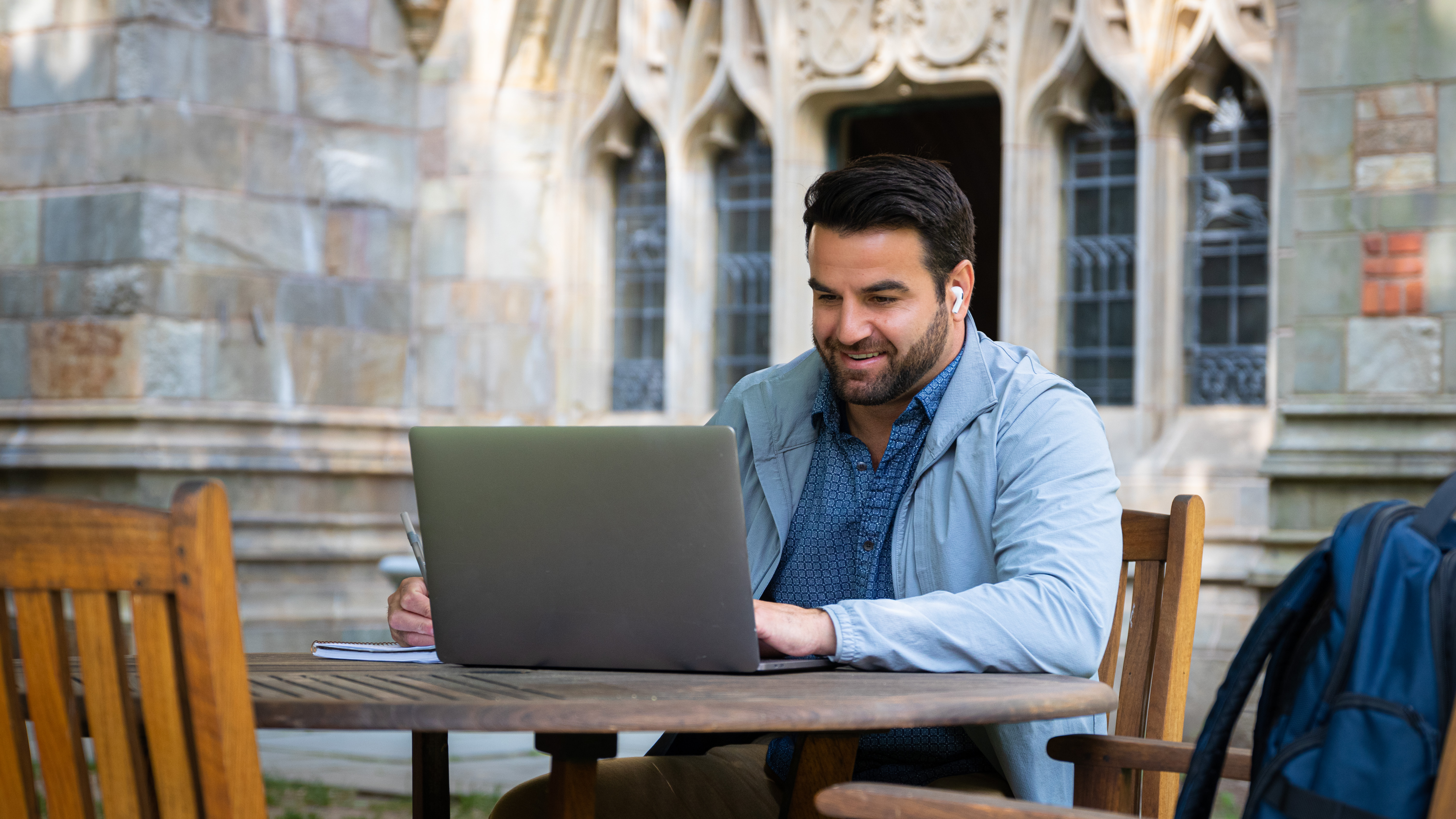Since the early 2000s, Yale has pioneered new models of online and hybrid learning, continually evolving to meet the needs of learners around the world. Our timeline highlights key initiatives that reflect Yale’s commitment to access, academic excellence, and educational innovation. Explore how online education has grown at Yale.
Innovations in Digital Education
Yale, Stanford, and Oxford launched the Alliance for Lifelong Learning (AllLearn) in 2001, offering high-quality online noncredit courses for alumni. Professor Diana Kleiner led Yale’s efforts, creating a model with teaching fellows overseeing interactive discussions. Despite its closure in 2006, AllLearn taught valuable lessons about course creation, technical support, and marketing.
Under Professor Diana Kleiner, Yale launched Open Yale Courses (OYC), providing free access to Yale’s liberal arts lectures and materials. Unlike AllLearn, OYC focused on wide distribution through platforms like YouTube and iTunes U. The project expanded reach by translating courses, supported by a $3.8 million grant from the Hewlett Foundation. The production model inspired subsequent MOOCs.
Yale College introduced online courses for credit in 2011, starting with two courses and expanding to eighteen by 2014. These courses ran concurrently worldwide, using technology for live interactions. Faculty assessments confirmed that the online courses matched the quality of traditional Yale classes, with students engaging critically and gaining equivalent content.
Yale’s Center for Language Study partnered with Cornell and Columbia to offer small languages through a virtual synchronous class model. This consortium, now teaching eight languages, allows students from the three universities to attend classes via video conferencing, expanding access to niche language instruction.
Online Experiences for Yale Scholars (ONEXYS) provides a cohort of incoming first-year students with the opportunity to prepare for the rigors of quantitative study at Yale before arriving on campus in the fall. Many of the quantitative concepts and skills are drawn directly from Yale’s introductory math courses and placement exams, and are utilized across disciplines in the freshman year curriculum—ranging from economics to chemistry to political science. To help participants ease their transition from high school, ONEXYS participants receive access to a wealth of online resources, including engaging asynchronous lesson videos, synchronous discussions with other ONEXYS students, mentoring from the current Yale students who serve as ONEXYS coaches, and a variety of assessments. This model paved the way for further professional schools to develop programs to better prepare incoming Yale students.
In 2017, the Poorvu Center put out a university-wide call for proposals to create online certificate programs. The Poorvu Center funded an excellent proposal from The Environmental Leadership & Training Initiative (ELTI) program out of the School of Forestry, supporting their work to promote land use practices which conserve and restore tropical forests. This partnership also marked the start of a collaboration with the Center for Business and Environment at Yale (CBEY), which launched a similar online certificate on clean energy finance later in 2019. Together, ELTI and CBEY worked with various departments and units at Yale to innovate and serve as a model for developing non-degree programs.
After several years of development in partnership with the Poorvu Center, Yale School of Public Health launched their Executive Masters in Public Health (EMPH). The creation of the EMPH program was a collaborative, in-depth process aimed at addressing a specific challenge: providing a world-class public health education that meets the needs of busy working professionals. The hybrid program spans 2 years and is nearly fully online with the exception of 3 on-campus intensives. The program has since welcomed professionals from various industries, each contributing their expertise while also learning from leaders in Public Health.
What Our Learners Are Saying
We are proud of our online programs, but don’t just take our word for it. Hear what alumni from the Executive Master’s in Public Health have to say about why they chose Yale and what they got out of the online experience.
Digital Education
Explore other aspects of teaching online.

